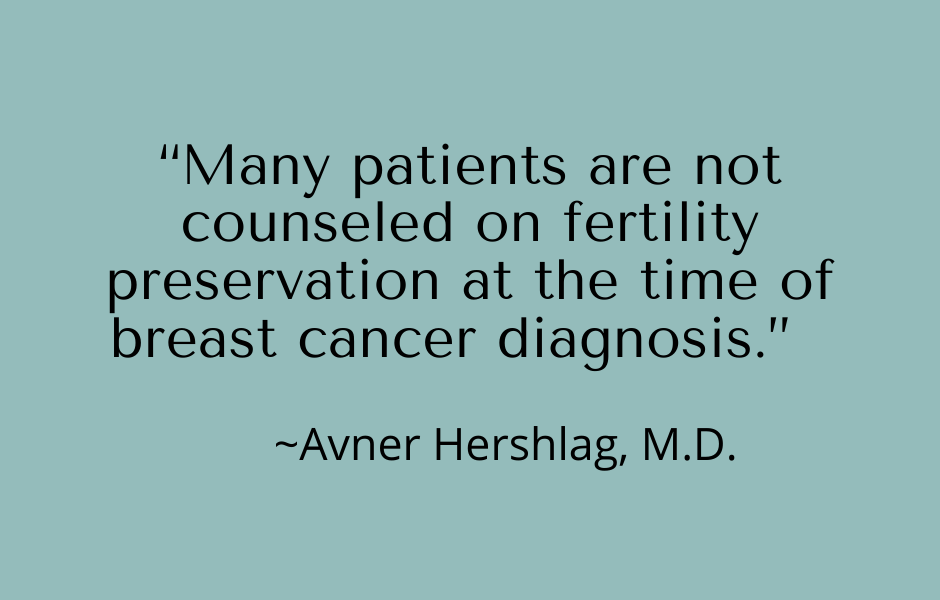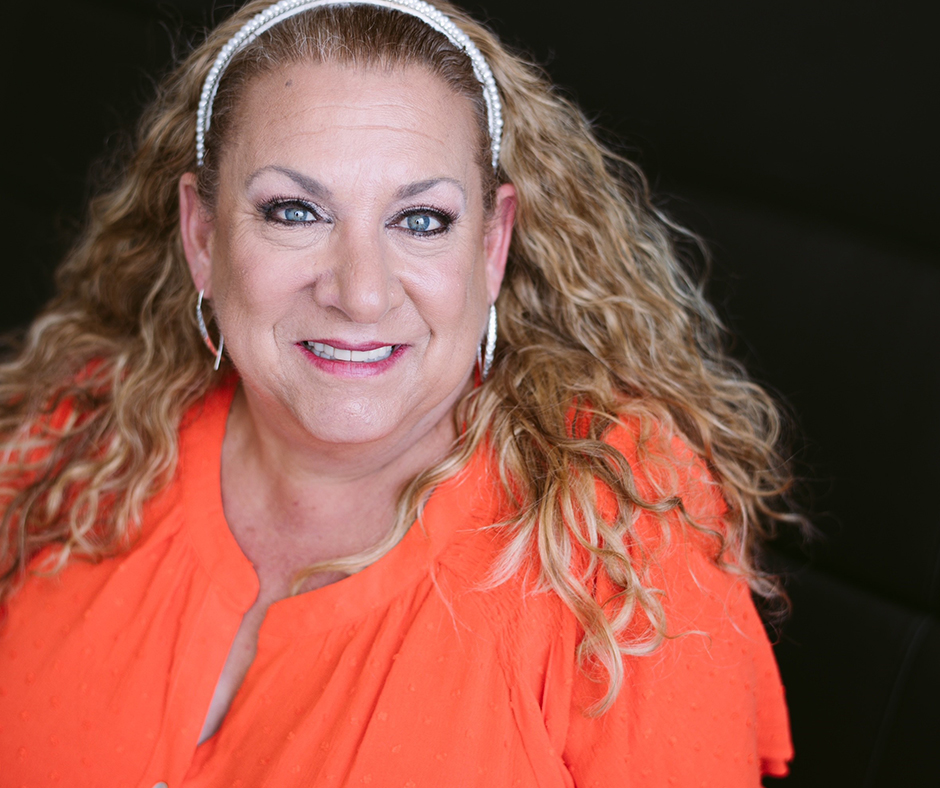Cancer Treatment and Motherhood: All it Takes is a Little Planning
July 31, 2021
A breast cancer diagnosis comes with so many pressing long-and-short-term questions that one key consideration often gets lost in the shuffle: what if I want to have children after treatment? Between treatment, surgery, and preparation for recovery, it’s easy to pass over fertility or to feel that there is not enough time to address motherhood when your survival is at stake.
“Many patients are not counseled on fertility preservation at the time of breast cancer diagnosis,” fertility specialist Dr. Avner Hershlag said.
Dr. Hershlag joined us for the July installment of the Be Informed Lecture series, where he discussed the bright horizons for motherhood among breast cancer patients. According to Dr. Hershlag, only about sixty-two percent of breast cancer patients are counseled on fertility when they’re diagnosed. While swift cancer treatment is essential, he explained that survival rates for breast cancer are now about ninety-percent. That means that patients can and should plan for their lives after cancer, including motherhood.
Dr. Hershlag provided insights into available fertility treatments, who those treatments serve, and how they can fit into your cancer treatment plan as a whole. Read on for highlights from the presentation or watch the whole thing, here!
Cancer treatment can damage reproductive organs.
“Direct pelvic radiation is probably the biggest insult to the ovaries. Right below it is alkylating agents,” Dr. Hershlag explained.
Chemotherapy impacts the ovaries in three ways. It damages the ovaries themselves, compromises their blood supply and attacks their cells. While this damages reproductive potential, the good news is that there are treatments available that can both preserve and protect fertility during and after chemotherapy and radiation.
Fertility preservation (egg freezing) is one of the most effective ways to become a mother after breast cancer.
The primary mode of fertility preservation is egg freezing. Patients can freeze either eggs or embryos, depending upon whether they are partnered. Some patients choose to freeze some of each, particularly if they are younger and unsure as to whether they will want children with their current partner.
Patients can protect their ovarian function during treatment.
In addition to egg freezing, patients can choose to have injections of a medication called lupron, which helps to preserve the reproductive system during treatment.
Age impacts outcomes, but younger patients should be concerned about their fertility after breast cancer treatment, too.
While long-term menopause after chemotherapy is most common in women over thirty-five, young patients can also see damage to their reproductive system as a result of chemotherapy or radiation. Dr. Hershlag encouraged young patients considering children to see a fertility specialist. He said that eggs can remain frozen for such a long time that it’s often worth it to freeze them just in case.
“Eggs and embryos may remain frozen for as long as is necessary—we are talking years.”
You may have more time to pursue fertility preservation before treatment than you think.
“The classic window [for fertility presentation] was between surgery and chemotherapy,” Dr. Hershlag said. However, in recent years, treatment order has changed for some patients, and many oncologists and surgeons are choosing to reverse the order. In many cases, chemotherapy comes first, and then the patient has surgery.
“In this case, there’s always the feeling that there is a rush,” Dr. Hershlag explained. However, that rush is not always genuine. That’s why it’s important to talk to your oncologist about a consultation with a fertility specialist. He said that more often than not, there is enough time to freeze eggs or embryos. Moreover, fertility specialists are extremely responsive to the time-sensitive nature of fertility preservation when cancer treatment is involved.
Simply put: “We override the schedule, and we’ll see you so that we can start the process right away.”
Cancer treatment is always the priority.
While Dr. Hershlag stressed the importance of prompt consultation with a fertility specialist, he made sure to note that eradicating cancer was always the primary concern.
“We give the care of breast cancer priority, because first we want you alive, then we want you to be alive.”
Fertility is worth a conversation with your oncologist, who can connect you to a fertility specialist and help you determine how that step does or does not fit into your treatment plan.
One Patient Seizes Her Chance to Shine
While many of us are leery of the limelight, there are some people out there who are born to shine. Jackie is one of those…
